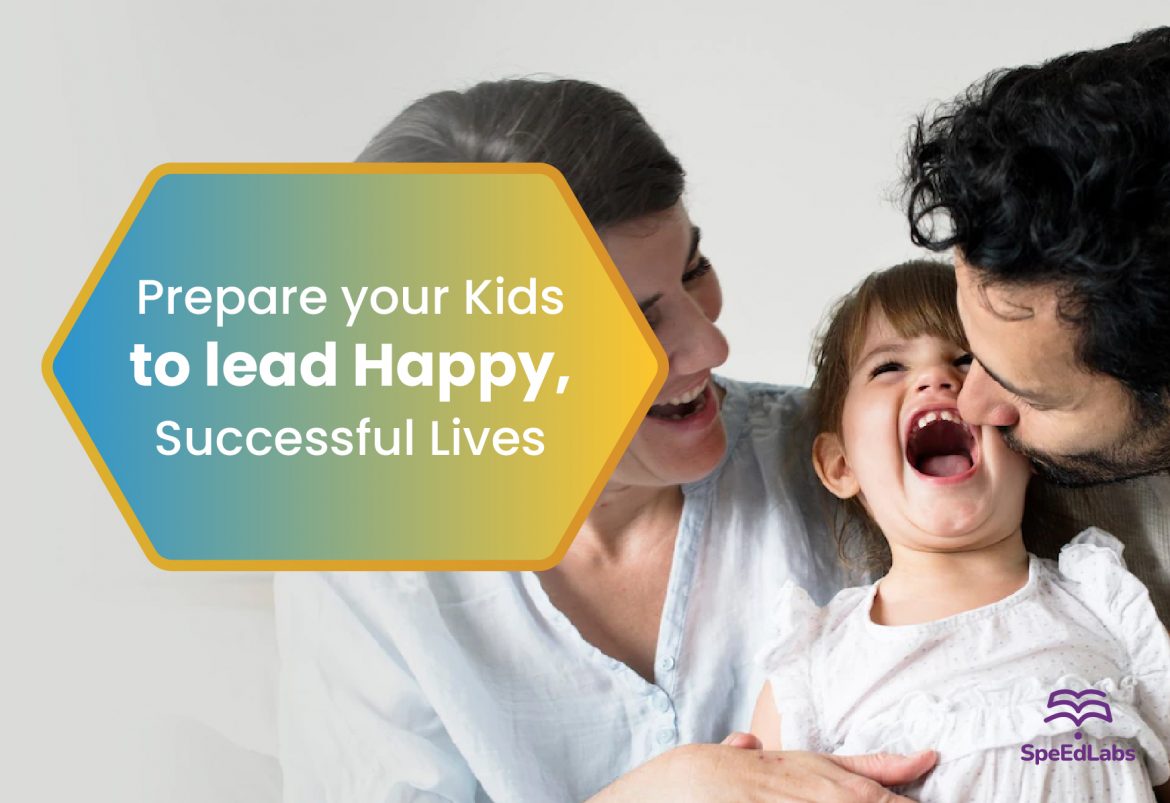20th March 2022, Sunday was the International Day of Happiness, a day aiming to make people around the world realize the importance of happiness. And in todays’ pandemic world setting, children are the most affected, hence it is necessary to ensure that they are happy, healthy enough to focus on future success. However, many parents ask how they might raise happy children in today’s world. Raising happy children isn’t about providing them with temporary pleasure or instant gratification. The reverse is true.
IMPORTANCE OF HAPPINESS IN A KID’S LIFE
Happy children have a skill set that enables them to have long-term satisfaction in life. They can forgo immediate enjoyment to achieve their objectives. Adopting healthy, lifelong habits can help your children develop those talents.
HOW CAN ONE ENSURE HAPPINESS IN THEIR KID’S LIFE?
Instill Thankfulness
Instilling thankfulness in your children’s daily life may help them become happier, healthier people. However, keep in mind that there is a significant difference between forcing a “thank you” and truly meaning it.
Reasonable Expectations
While spending hours preparing for a test or learning a musical instrument is not fun, children who strive to do difficult things are more likely to live happy lives. Your expectations have a major influence on your child’s readiness to try new things. As long as your expectations are reasonable, your children will strive hard to meet them.
It is crucial to stress, however, that you should not expect perfection. Setting too high a standard for your child is likely to backfire. Expecting your child to be flawless may increase his or her chance of developing mental health problems. Your child may also abandon her ambitions if she believes you have set an impossible standard for her.
Assign Tasks
Your children will no longer like cleaning the table or dusting the living room. However, allocating work may be a vital role in assisting people in achieving long-term satisfaction. According to one study, assigning duties to children as young as three and four years old is the best predictor of long-term success.
It’s possible that youngsters who do chores feel more attached to their families because they feel like they’re contributing. And that sense of belonging may help children stay mentally strong when they face adversity.
Chores can also teach children valuable life skills such as responsibility and community service. They may also discover that they can deal with tedious chores or that they can persevere even when they are frustrated.
Making their beds and cleaning the kitchen can also provide kids with a sense of success and demonstrate to them that, despite their youth, they are capable of making a difference.
Eating as a Family
It can be tempting to grab food on the fly and eat at different times when your children have sports sessions, games, and other extracurricular activities. However, dining together as a family may be one of the best things you can do if you want to raise happy children.
A higher frequency of family dinners was found to be strongly connected with happy emotions in adolescents in one study. Another study discovered that teens who have meals with their families have more optimistic outlooks on the future.
Family meals may also be beneficial to one’s health. Children who eat with their parents are less likely to be overweight or to suffer from an eating disorder. Teens who eat dinner with their parents are also less likely to struggle with substance abuse or behavioural issues.
Don’t worry if you can’t get everyone together for a family meal every night. The majority of studies have found that children benefit from eating with their parents a few nights per week.
Exercise as a Group
Exercise can make everyone in the family happier, whether you go for a nightly walk as a family or you do workout videos from the comfort of your living room.
However, you may believe that there is no need to exercise together because your child is likely to get enough exercise at recess or through sports activities. However, exercise is likely to make you happier, and happier parents have happier children. Getting physically active together can also help you bond and create positive memories together, both of which are ingredients for happiness.
Helping Others
Numerous studies have linked altruism to happiness. Being kind to others can make your children happier, and happiness makes them kind. It’s a virtuous circle that prepares them for a happier, healthier life.
Challenge everyone in the family to perform one act of kindness each day and share your experiences over dinner each night.
Choose an organisation to assist each year and volunteer together as a family for a couple of hours each week.
Set aside a portion of your child’s allowance each week to donate to a worthy cause, and allow your child to choose where the money should go.
ONE SHOULD REMEMBER
Keep in mind that children do not have to be happy all of the time. They must also experience unpleasant emotions such as sadness, anger, fear, and disappointment.
When your children are experiencing unpleasant emotions, there is no need to cheer them up or intervene. Instead, coach them through it and assist them in finding ways to soothe and cope with their emotions.
If they aren’t happy every minute of the day, it’s not a reflection of your parenting. It is not your responsibility to become responsible for your children’s happiness. Instead, it is up to you to teach your children how to manage their emotions healthily.
Finally, the most important thing you can do to help raise happy children is to provide them with a loving environment. Children who know they are loved and cared for are more likely to thrive in life, even when they face adversity.
Also published on Medium.
